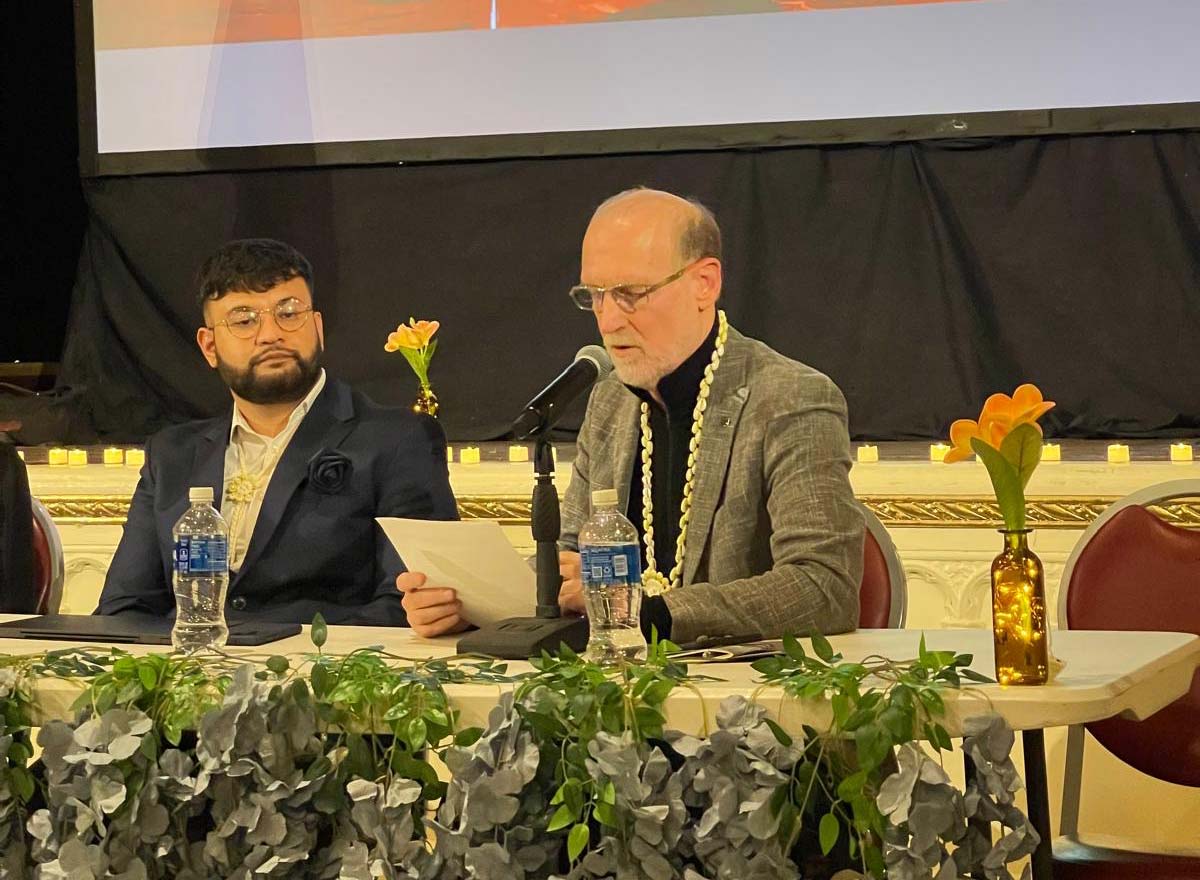The Third Meeting of States Parties for the Treaty for the Prohibition of Nuclear Weapons took place at the United Nations in New York 3-7 March, 2025. IPPNW-GLO Director Chuck Johnson attended the five days of meetings and presented at
Julianne Hauschulz of IPPNW Germany and Jean-Marie Collin of ICAN France delivered the following statement on 7 March.
Our organisations, European partners organizations of the International Campaign to Abolish Nuclear Weapons (ICAN), are alarmed by the dangerous and proliferating rhetoric from some of our heads of states and governments in favour of a Franco-British nuclear umbrella. This dynamic undermines decades of European commitments to nuclear disarmament, non-proliferation and international law, exposing a deep hypocrisy. On one day, these states claim to uphold the international security architecture, namely the Nuclear Non-Proliferation Treaty (NPT); on the next, they openly debate nuclear armament. Their efforts to condemn others’ nuclear threats ring more hollow by the day. Needless to say, if the projects go ahead, they will decrease security for Europeans and, in fact, for all states.
We therefore welcome the work carried out by you, the states parties to the TPNW, in the intersessional period and specifically in the consultative process on the legitimate security concerns, as a constructive way to engage with this nuclear security debate. As we are witnessing a surge in rhetoric around portraying nuclear weapons as a security strategy in our European countries, this work is a necessary counterpoint, representing the security interest of half of the world’s countries.
Along with the States parties to the TPNW, we share the understanding that nuclear deterrence can never be a responsible or sustainable security strategy. We resist any normalising of nuclear weapons which promotes proliferation or puts an end to the nuclear taboo since 1945. Constant readiness, ability and threats to commit mass murder against civilian populations is a cynical understanding of security. It is condemnable when any state, but especially those who claim to defend and promote democracy speak about risking civilian lives and livelihoods.
Our governments have long positioned themselves as defenders of international law, including international humanitarian law. They have argued that reduction in nuclear weapons stockpiles and promotion of arms control measures are evidence of their commitment to the NPT. So how should we understand their proposals about increasing the reliance on nuclear weapons?
Normalising nuclear weapons is a step in the wrong direction, especially today when the risk of nuclear war is higher than ever. TPNW states have proven willing and able to strengthen international norms against nuclear weapons and now its more important than ever. The road to a world free of nuclear weapons requires strong leadership, courage, and consistency. From Europe, Malta, Austria, Ireland, San Marino, Liechtenstein and the Holy See have taken a principled stand by joining the Treaty on the Prohibition of Nuclear Weapons (TPNW). Their leadership must be applauded, and we urge them to use every diplomatic channel to prevent further nuclearisation in Europe and offer them our support as civil society organisations, academics, experts and survivors of the harms arising from nuclear explosions.
Dear Delegates, we urge you to speak about the security concerns of nuclear weapons for your countries in every available forum and to continue the work started in the past intersessional period on this issue. Speak to your European counterparts about how the implicit and explicit threat of use of nuclear weapons directly impacts our collective security.
We, as European civil society, will continue to hold our governments accountable, push for adherence to international law, and advocate for upholding human rights and for creating a safe and just world for all people. It is our collective mandate that, rather than turning away from this responsibility, we can influence all European states to engage with and join the TPNW.

